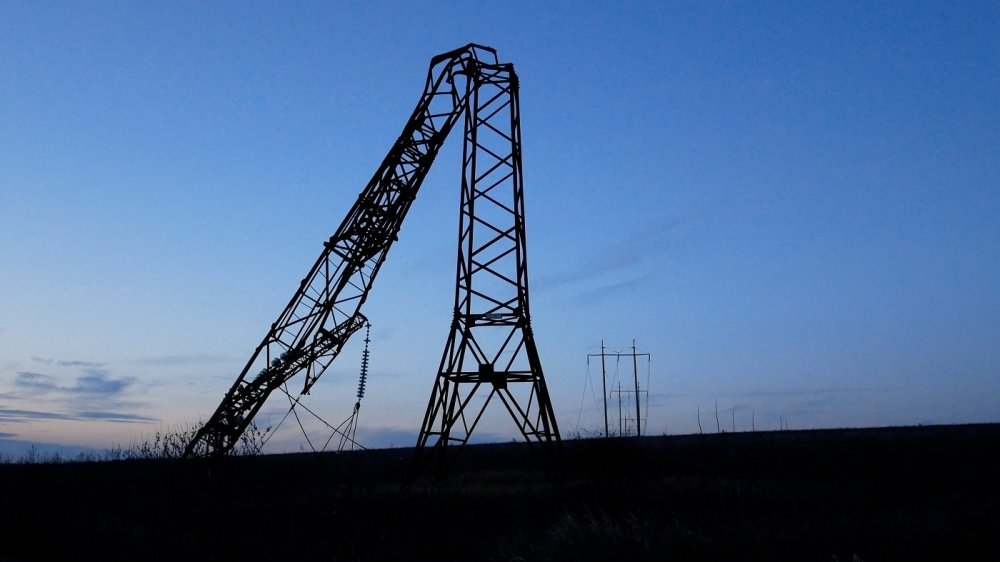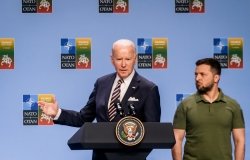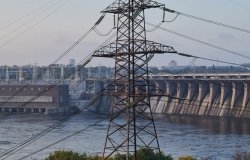
A blog of the Kennan Institute
The Ukrainian Energy Sector’s Thorny Road to European Integration

Ten years after the Revolution of Dignity, which broke out in response to the Yanukovych government’s decision to abandon the European integration movement in favor of closer ties with Russia, Brussels recommends starting negotiations with Ukraine about this integration. The intervening ten years of preparation, while not easy, were nonetheless fruitful. However, much work remains to be done.
In its recent report on Ukraine, the European Commission rated Ukraine's progress in implementing energy reforms as at “a good level of preparation.” For the specific period since the start of Russia’s full-scale invasion, Ukraine was ranked as having made "some progress." Despite these relatively high assessments, some problems remain, and the "entrance exam" must be passed in its entirety—regulations and obligations must be satisfied to bring Ukrainian energy markets and regulations fully in accord with European rules and practices.
Outstanding Issues in Harmonizing Ukraine’s Energy System with the EU’s Energy Community
What remains to be done? With respect to the internal organization of Ukraine’s energy market, the report focuses on a handful of problems: the interventions by authorities and companies in the corporate governance mechanisms of system operators (Ukrenergo and the Transmission System Operator of Ukraine); the existence of price caps on the electricity market (restricting the real market price); the independence of the National Energy and Utilities Regulatory Commission (the energy regulator) and trust in it as an independent and impartial institution; and the problems the state energy companies Naftogaz, Energoatom, Ukrhydroenergo have experienced as a result of the obligation to subsidize tariffs for households.
None of this caught Kyiv by surprise; Ukraine’s European partners have been talking about these problems for years. And different Ukrainian governments have repeatedly postponed solving the problems, referring to objective difficulties or looking for excuses, fearing criticism from political opponents. The Energy Community Secretariat, which acts as the guardian of the Energy Community Treaty, has repeatedly drawn attention to the fact that the current model of price caps distorts market signals, and has underlined the energy sector’s mounting debt problems because of market overregulation. The total outstanding debt in Ukraine’s gas market exceeds $5 billion; in the electricity market it is more than $1.5 billion. This debt burden threatens the functioning of the markets, a situation that will only be exacerbated during the upcoming winter, when a new wave of Russian attacks on Ukraine’s energy infrastructure is expected.
In recent months the Energy Community has emphasized the need to ensure the independence of the energy regulator. The Secretariat even launched an investigation into the matter after the regulator’s decision to increase water supply tariffs was reconsidered immediately after top officials criticized it. The Secretariat subsequently noted that the regulator's independence is not only a legal requirement, it is also a cornerstone of Ukraine's future integration with the European energy markets and foundational to Ukraine continuing on its reform path in the energy sector and establishing confidence with public donors and private investors alike.
Progress in Reforms Is Stymied by the Outsized Role of the State
These various problems do not mean that Ukraine has not notched solid achievements in reforming the energy sector and bringing it closer to the European model. In recent months, there has finally been progress in implementing mechanisms to prevent collusion and abuse by players in the electricity market, the so-called REMIT (Regulation on Wholesale Energy Market Integrity and Transparency), which is intended to protect the interests of both energy market participants and end users.
However, there are clear problems in reforming the energy sector. To a certain extent, these problems are philosophical in nature, and most of them boil down to one simple issue, the outsized role of the state in the energy sector. The state is trying to maintain and increase regulatory influence over the energy sector and have more control over assets, increasing its market share and market concentration even as a single company, the state-owned Naftogaz, occupies a larger and larger share of the market. This degree of concentration weakens competition and is counter to the state’s interest in establishing a robust energy marketplace.
The hypertrophied role of the state in energy is traditional for Ukraine because it is essentially a rudimentary leftover of the Soviet economic system’s organization and Soviet mentality in general. In such a model, the state is the sole owner of assets. There are no market principles for managing and using these assets, only centralized planning, although such is not always justified. In addition, the state assumes responsibility for ensuring low prices for energy supply services.
Some may note that there is nothing wrong in theory with the state keeping prices low and controlling energy assets. However, low prices do not create any motivation for energy saving and energy efficiency, another priority of the EU energy policy. With rare exceptions, the state has not been an effective owner of energy assets in Ukraine. A telling example is the state-owned Centrenergo, one of the largest electric power companies, which, despite multiple changes in management, has experienced constant problems in meeting winter demand.
At the same time, the democratic electoral system, when joined to state control of the energy sector, exposes the country to the dangers of populism as politicians compete with one another in their promises to provide the lowest energy prices to households and industry. Unfortunately, citizens will continue to demand lower and lower prices and expect the state to subsidize them if necessary, a tattered remnant of the old Soviet mindset. State subsidy would both limit the development of energy companies and provide a useful source of corruption schemes.
Regulations Will Play a Large Role in the Postwar Recovery of the Energy Sector
The problem of the postwar recovery of the energy sector is closely related to the particulars of its regulation. Most domestic energy assets were obsolete, inefficient, and physically exhausted even before the full-scale invasion, and the Ukrainian economy was among the most energy-intensive. Ukraine enters the winter of 2023–2024 with a capacity deficit, and the expected airstrikes during the winter will further deepen the deficit. As a result, the country risks living with cutoffs and rolling blackouts next summer.
Russian energy terror and the destruction of energy infrastructure raise the need to restore the energy sector to an imperative. Ukraine will have to build new, modern, and efficient energy facilities—which requires financing. But who will invest in Ukrainian energy if regulations only contribute to the accumulation of debt, not to investment? It is dangerous to count on international assistance in rebuilding the economy and the energy sector. These sectors should be made attractive for investment, which is impossible without transparent and effective regulation, just as the EU requires. Slogans, populism, and attempts to manually regulate the energy industry cannot bring about this result.
The opinions expressed in this article are those solely of the author and do not reflect the views of the Kennan Institute.
See our newest content first.
Subscribe to receive the latest analysis from Focus Ukraine.
About the Author

Andrian Prokip
Director, Energy Program, Ukrainian Institute for the Future

Kennan Institute
The Kennan Institute is the premier US center for advanced research on Russia and Eurasia and the oldest and largest regional program at the Woodrow Wilson International Center for Scholars. The Kennan Institute is committed to improving American understanding of Russia, Ukraine, Central Asia, the Caucasus, and the surrounding region though research and exchange. Read more

Global Europe Program
The Global Europe Program is focused on Europe’s capabilities, and how it engages on critical global issues. We investigate European approaches to critical global issues. We examine Europe’s relations with Russia and Eurasia, China and the Indo-Pacific, the Middle East and Africa. Our initiatives include “Ukraine in Europe” – an examination of what it will take to make Ukraine’s European future a reality. But we also examine the role of NATO, the European Union and the OSCE, Europe’s energy security, transatlantic trade disputes, and challenges to democracy. The Global Europe Program’s staff, scholars-in-residence, and Global Fellows participate in seminars, policy study groups, and international conferences to provide analytical recommendations to policy makers and the media. Read more










